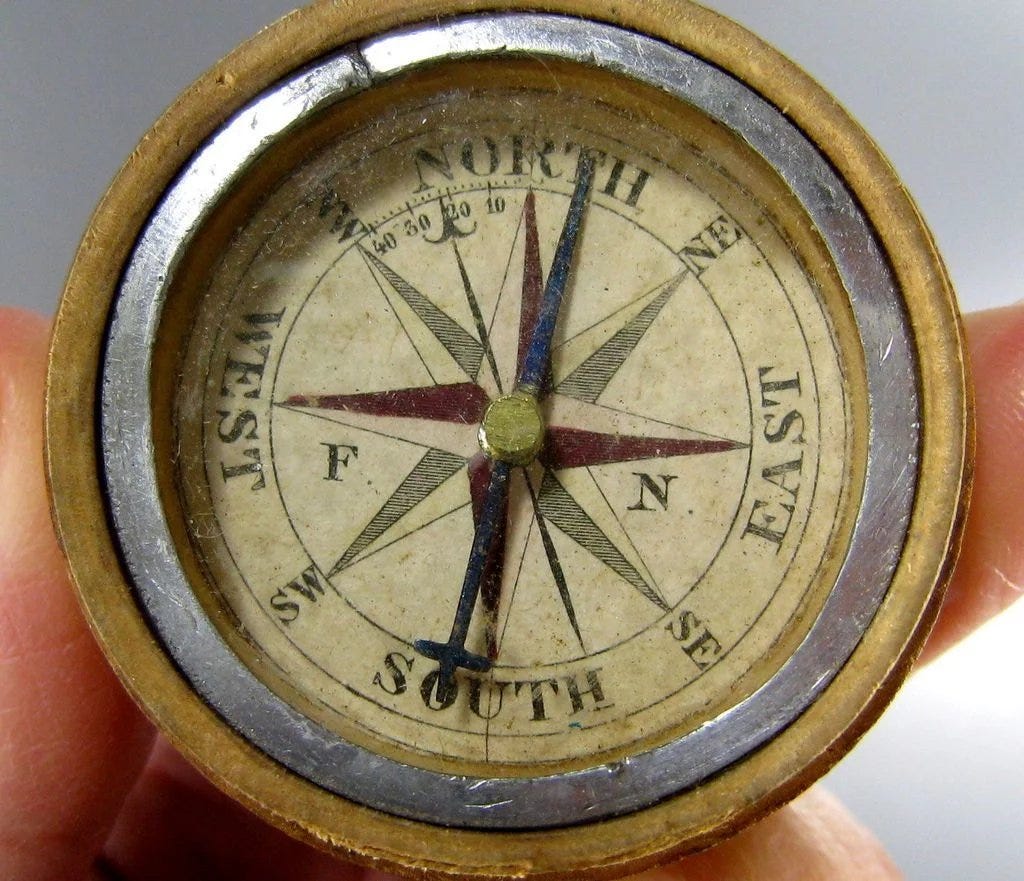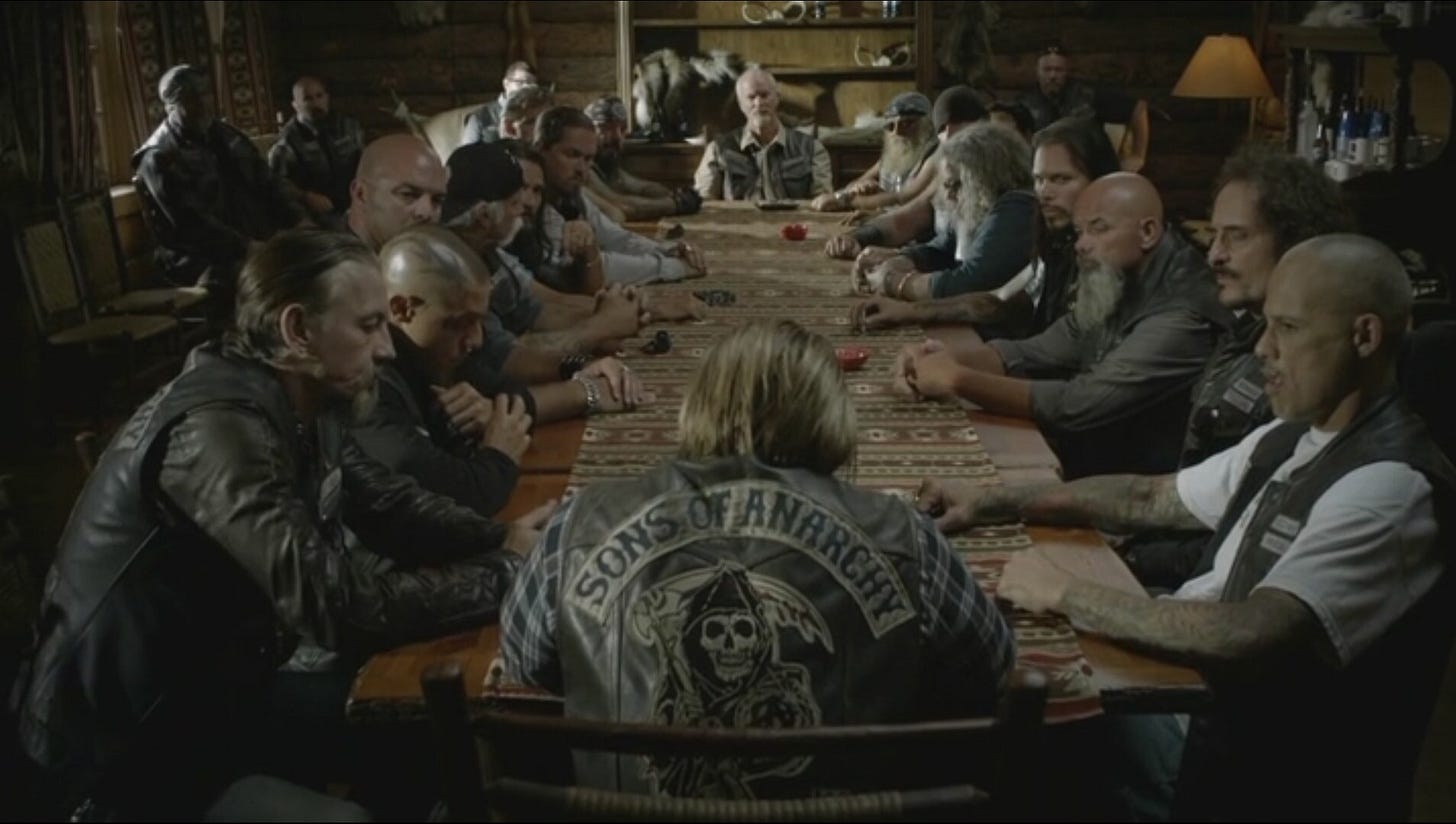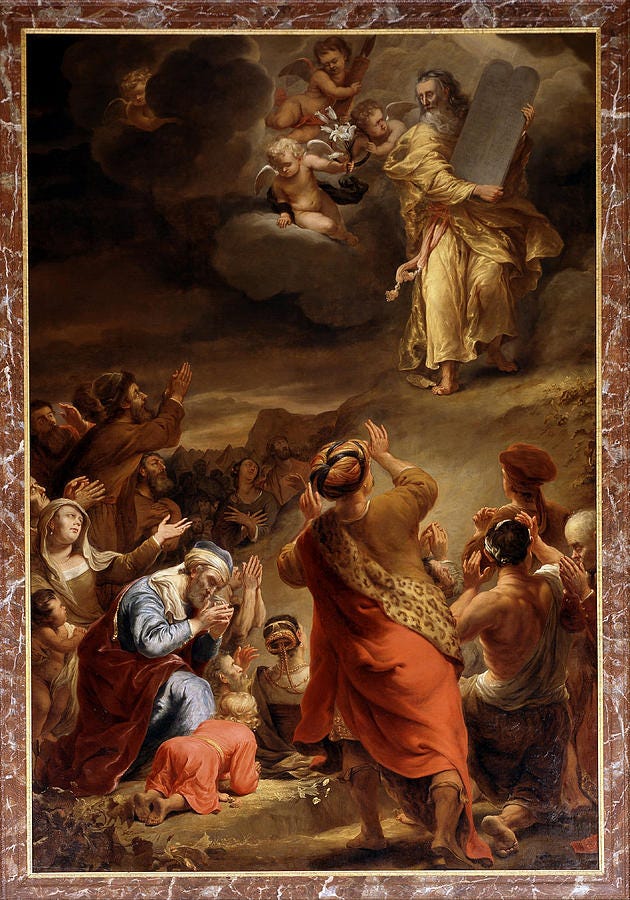Adulting Part Eleven: What’s Right? What’s Wrong?
One thing to think about in any relationship: if your moral compasses don’t match, you may have disagreements and issues.
Science investigates; Religion interprets. Science gives man knowledge, which is power; Religion gives man wisdom, which is control. Science deals mainly with facts; religion deals mainly with values. The two are not rivals. Dr. Martin Luther King Jr.
What is a compass?
Have you ever thought about how the early pioneers traveled from one continent to another? They didn’t have a Global Positioning System (GPS) or maps for that matter. They used the stars and a compass to cross the oceans.
Have you ever been sailing?
There are days when all you see is the horizon of water and sky; at night all you see is black linear space meeting a horizon of nothing but stars, on a clear night.
In either of these situations, how do you get where you want to go? If you have an instrument called a compass, you’ll end up pretty close to where you want to be.
A compass is an extremely simple device. It is a lightweight magnet balanced on a thin strip of metal and the metal strip and the magnet form a “T”. The magnet is called a “needle” and will generally be marked at one end with “N” or a distinct color indicating it points North.
No matter where you stand on Earth (with the exception of a high altitude location) a compass will point north.
The magnetic compass was first created in China, thought to be as early as the 3rd century. However, it wasn’t used for navigational purposes for at least a thousand years, instead used for spiritual rituals.

Jack Sparrow "True enough, this compass does not point north."
Elizabeth Swann "...Where does it point?"
Jack Sparrow“It points to the thing you want most in this world."
Jack Sparrow and Elizabeth Swann - Pirates of the Caribbean
How do you know what’s right and what’s wrong?
Is your version of right&wrong™ the same as your best friend’s version?
Does your version of right&wrong™ line up with the teacher who is with your kids all day at school?
Does your version of right&wrong™ line up with the politicians you vote for?
How did you develop your own version of right&wrong™?
Did you develop a static (stays the same) version of right&wrong™ or do you navigate using societal norms? (Social norms are the unwritten (or sometimes written) rules of society that differ from culture to culture.)
In otherwords does your version of right&wrong™ change by situation?
Is religion the only way one can develop a version of right&wrong™?
If you don’t participate in an instutionlized religion can you develop a version of right&wrong™?
What happens to the concept of right&wrong™ when religion disappears?
Mor•al com•pass. Noun. Used in reference to a person's ability to judge what is right and wrong and act accordingly.
Your moral compass directs you to the right thing to do in a situation.
Do you have a moral compass?
A moral compass is needed in order to be a productive, successful and happy adult.
Aristotle (an ancient Greek philosopher of the Classical period, also known as the Father of Western Philosophy) taught that a moral compass is simply a train of thought where you can measure the “good” of your individual actions versus your overall life.
There a few reasons you might want to develop a consistent moral compass:
To build healthy relationships.
To center your identity.
To increase your self-confidence.
To be a role model or be able to recognize a role model.
A moral compass will provide a core set of values that help decide the actions you take in your life.
One thing to think about in any relationship: if your moral compasses don’t match, you may have disagreements and issues, so it’s important to develop a solid moral compass you believe in and stick with.
Developing a sophisticated moral compass requires an accurate understanding of history and how religion has shaped world history.
Many people just bristle when the topic of religion comes up. So many people feel lost today and may not understand why.
If you haven’t lived by a “code” (code of conduct, a set of rules outlining the rules, responsibilities and proper practices) or built a life that has a purpose, you will feel adrift and sad.
A code is what is so attractive with clubs, cults and with gangs.
The members all live by the same rules.
This is also true with the religions of the world.
Up until the mid 80’s some form of religion ruled many American lives. Much of it was Christian. Many Boomers embraced religion and tried to introduce it to their Millennial children. Just as many Boomers had religion forced on them and rejected it all together, not ever wanting to force a religion on their children.
The one thing religion did for society was to give it a code to live by.
When you have a code, you have a moral compass.
The Bible: The Number One Bestseller Since 1440
In 1440, Gutenberg invented printing press. The Bible has been printed an estimated five billion times. Throughout its history, it has grown from a collection of stories and teachings shared through oral tradition to a founding text for three of the world's largest religions Judaism, Christianity and Islam. In fact, all three recognize Abraham (a main character in the bible) as their patriarch (father of the religion).
The Bible has been copied and recopied into countless manuscripts, preached from at the pulpit, studied in universities and synagogues, and read in private. It has been translated and distributed all over the world. Many cultures have debated its meaning and prized its wisdom.
In order to be a well-read person, you need to read the entire Bible at least once. It may help develop a moral compass for you.
If religion scares you, turns you off, I promise you won’t burst out in flames nor will your brain drain out of your ears, if you read the Bible.
It is interesting.
When I introduced the Bible to my Millennial, I also gave him The Story Bible by Pearl S. Buck. He enjoyed matching what he was reading in the Bible with The Story Bible.
The original language of the bible was Biblical Hebrew. It was translated first into Greek then into Latin. 40 authors developed it over a period of 1500 years; it has 66 books, 39 in the Old Testament, 27 in the New Testament.
In the Middle Ages Monks translated by hand using beautiful script and artistic decoration.
My favorite religion joke goes like this: “The abbot (head monk) looking over the shoulder of the monk translator said ‘it says celebrate, not celibate’”.
You’d have to understand a bit about religion and the history of religion and the history of the Bible to get that joke. If you got it – good for you!
All of the big Religions of the world have basic rules they expect followers to embrace. Pick any one of the world Religions and it will be there, a set of rules that knit those folks together.
It’s the code for that group of people.
There has been a lot of controversy around the Ten Commandments especially with the public school system in America. At one point in history the Ten Commandments were displayed in all schools because most of the children attending were Christian.
In 1980, the Supreme Court ruled that displaying the Ten Commandments was unconstitutional because of the first part of the First Amendment to the United States Constitution: “Congress shall make no law respecting an establishment of Religion”. They were removed from the schools and I feel that is when we began to experience a moral decline in our culture.
We no longer had a common set of rules to play by.
The Ten Commandments are a good common sense set of rules one can use for personal behavior.
They cover all the ways humans can screw up.
When I was encouraging the beginnings of a moral compass for my Millennial, I explained the Ten Commandments to my then very young child. My child was what experts call “highly gifted”, which presented its own unique degrees of difficulty with spirituality.
He was more empirical (verifiable or provable by means of observation or experiment) than spiritual. This element of my students personality led me into many endless loops of explanation, but that for another day.
The first thing I taught was that there were ten big rules (from God). I read each one to him in the original format and then explained it with my version:
I. ORIGINAL: “I am the Lord thy God, thou shalt not have any strange gods before Me.” MY VERSION: There’s a force bigger than us and we need to always remember that. II. ORIGINAL: “Thou shalt not take the name of the Lord thy God in vain.” MY VERSION: Saying goddam is bad. So is holy-christ. Don’t do it. III. ORIGINAL: “Remember to keep holy the Sabbath day.” MY VERSION: Go to church. IV. ORIGINAL: “Honor thy father and mother.” MY VERSION: Respect your parents and take care of them when they get old. V. ORIGINAL: “Thou shalt not kill.” MY VERSION: Self-explanatory, we don’t kill things. VI. ORIGINAL: “Thou shalt not commit adultery.” MY VERSION: Don’t cheat on your wife or husband. (I got lots of questions with this one). VII. ORIGINAL: “Thou shalt not steal.” MY VERSION: Self explanatory. Don’t take someone else’s property. I elaborated further to include honoring the possessions of others, we don’t cheat people of their money or property, we don’t deprive workers of their just wage, and we give a full day’s work for a full day’s pay. The adult acts of embezzlement, fraud, tax evasion, and vandalism are also part of not stealing. (Even more questions with this one.) VIII. ORIGINAL: “Thou shalt not bear false witness against thy neighbor.” MY VERSION: Don’t lie. IX. ORIGINAL: “Thou shalt not covet thy neighbor’s wife.” MY VERSION: To think about a woman or a man that is not your wife or husband is very bad. Don’t do it. (He wanted to know why this one couldn’t be combined with number 6 (VI)). X. ORIGINAL: “Thou shalt not covet thy neighbor’s goods.” MY VERSION: Feeling envy, greed, and jealousy to what someone else has, is wrong, don’t do it.
Yes I watered the original intent down a bit, but as a once mechanical engineer, I generally follow KIS (Keep It Simple) logic or “reduce it to a known problem”.
If it’s simple, it’s remembered.
I was dealing with an empiricist (a person who believes based on what is experienced or seen rather than on theory).
My mother, who tried to bring my young empiricist religion the way she was taught, (she told him the story where a staff turned into a serpent and was peppered (to ask someone a lot of questions, one after the other) with questions how that could be) was impressed he could remember the Ten Commandments as I taught them.
One has to know their student.
I was also peppered with questions about how a staff could turn into a serpent.
One can’t help, but wonder what is going to happen to future generations when the traditional religions are erased from popular culture.
It seems there’s a strong push for this in America currently.
How will moral compasses be developed?
Qualities That Build Character
Rules that dictate personal behavior are only one part of a moral compass. How you react to behavior that differs from your set of rules is another part of developing an adult moral compass.
Plato (Aristotle’s teacher), 429 BC (Before Christ) authored The Republic where he describes “The Four Cardinal Virtues”:
Prudence – the ability to decide the right course of action in a given situation with appropriate timing.
Courage – the ability to confront fear, uncertainty and intimidation.
Temperance – practice of self-control.
Justice – the moderation between selflessness and selfishness. (Not social justice.)
These are essential elements to a moral compass and probably the most difficult to implement if you’ve never been required to.
These are qualities that build character. These are not taught or modeled in the public schools and certainly not at American Universities.
Developing these characteristics is what separates the boys from the men, the girls from the women.
Adults possess these characteristics in varying degrees and spend a lifetime fully developing them.
Behavior That Diminishes Character
In developing a moral compass, one needs personal behavior rules, solid character and must also be able to recognize behavior that diminishes character.
Introduced to man by the Catholic Church as the “The Seven Deadly Sins”, these behaviors will diminish any good character you have built:
Greed - Wanting too much of something.
Gluttony - The action of taking too much of something.
Lust - The need to fulfill unspiritual desires i.e. sexual desires.
Envy - Jealousy; wanting to have what someone else has.
Sloth - Being too slow or lazy at doing something.
Wrath - Vindictive anger; angry revenge.
Pride - Being too self-satisfied as being superior to others.
The Seven Deadly Sins try to steer you away from activity that diminishes (make or become less) character and makes you unhappy; or activity that ends up making you look childish.
Now I am not suggesting you memorize everything I have presented and live strictly by them.
I am putting ideas out there for you to consider.
I am suggesting you develop some rules to live by.
Your own code.
But remember, everyone else will will have their own code as well.








Wonderfully thoughtful!